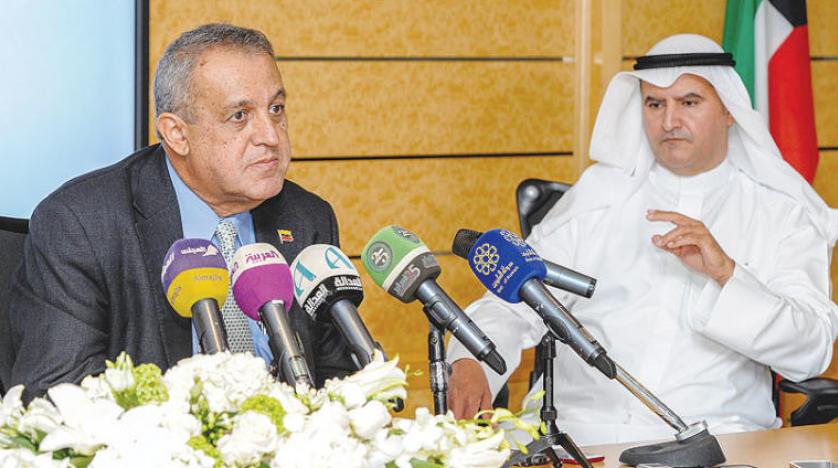Kuwait- Each of Kuwait and Venezuela confirmed that the Organization of the Petroleum Exporting Countries (OPEC) is not nearly close to extending the current cut in production agreement, saying onlookers are trying to introduce the idea into the market.
Kuwait Oil Minister Essam al-Marzouq holds a press conference with Venezuelan Oil Minister Eulogio Del Pino in Kuwait city on Wednesday.
Oil Minister Marzouq said OPEC could hold an extraordinary meeting in mid-March if it did not reach a decision on extending oil production cuts when it meets in November.
The two ministers explained that they are against speculation in the market and false broadcasts are core to negatively affecting price rates at the moment.
OPEC and other major producers, including Russia, agreed at the end of last year to cut oil production by 1.8 million bpd to support rebalancing the market. In May they agreed to extend the agreement until March 2018.
The Venezuelan oil minister said that every time ministers hold any meetings, speculators try to create an environment that suggests there is “confirmation” of a decision to extend the agreement.
Ministers were aiming for oil prices to be at $60 or more a barrel when they first agreed last year to cut output, but crude is trading at $10 less than what they had expected, Del Pino said.
Kuwait and Venezuela are both on the joint ministerial monitoring committee, known as the JMMC, that reviews compliance with the agreed cuts. The committee will meet on Sept. 22 in Vienna, and Marzouq and Del Pino said there will be no serious discussions of an extension then.
“The JMMC meeting next week is to review the agreement and not take any decision,” Del Pino said. “Speculators are trying to create an environment that we will be taking a decision next week.”
Marzouq said the committee is currently considering six scenarios and may discuss a recommendation to ease production targets for countries that aren’t complying fully with the cuts accord. Ecuador announced in July that it won’t be able to meet its target because it needs to boost its revenue.
Nigeria, which together with Libya is exempt from OPEC’s cuts deal due to internal strife, has agreed to join the agreement if it reaches and sustains crude production at 1.8 million barrels day, Kuwait’s Marzouq said.
Nigeria’s oil minister has assured that he will attend the next JMMC meeting, while Libya will send a senior official, probably the head of its national oil company, Marzouq said.
